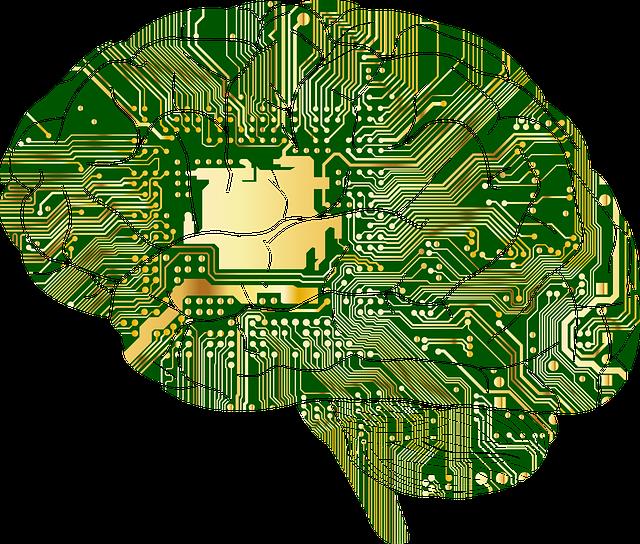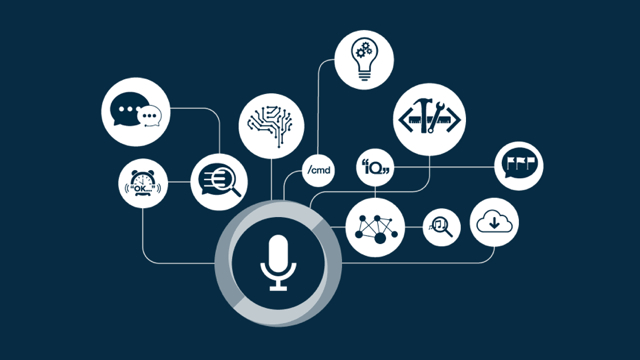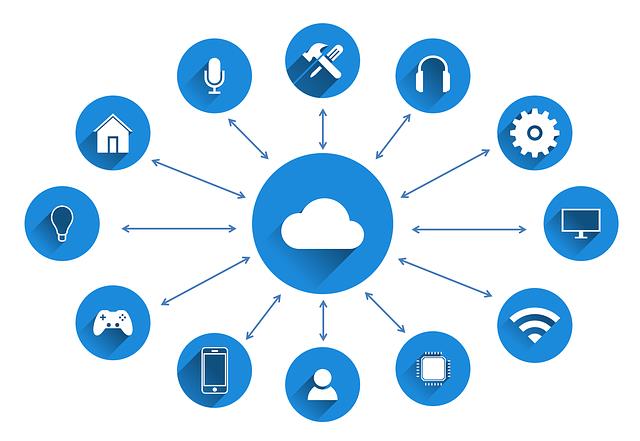
Artificial intelligence (AI) is transforming the way businesses operate, providing new opportunities for growth and efficiency. In this article, we will explore ten key ways in which AI is revolutionizing the business landscape.
From predictive analytics and customer relationship management to personalized marketing and decision making, AI is enabling organizations to make data-driven decisions, enhance customer experiences, and mitigate risks.
Join us as we delve into the exciting world of AI and its impact on the future of business.
Predictive Analytics
The use of predictive analytics in business is revolutionizing the way companies make informed decisions and plan for the future.
Predictive modeling, a key component of predictive analytics, involves the use of historical data and statistical algorithms to forecast future outcomes.
By leveraging machine learning techniques, businesses can analyze vast amounts of data to identify patterns and trends, enabling them to make accurate predictions about customer behavior, market trends, and operational efficiency.
This allows companies to proactively address potential risks and opportunities, optimizing their strategies and improving overall performance.

With predictive analytics, businesses can gain a competitive edge by making data-driven decisions and staying ahead of the curve.
Customer Relationship Management
Customer Relationship Management (CRM) is a crucial aspect of business success, and AI technology is playing a significant role in revolutionizing this area.
AI-powered tools are enhancing CRM efficiency by automating repetitive tasks, allowing businesses to allocate their resources more effectively.
Additionally, AI enables personalized customer interactions by analyzing vast amounts of data, providing businesses with valuable insights and enabling them to tailor their approach to individual customers.
AI Enhancing CRM Efficiency
AI technology is transforming CRM efficiency in business operations. With the advancement of AI in supply chain and AI in cybersecurity, businesses are now able to leverage AI capabilities to enhance their CRM systems.
AI-powered chatbots and virtual assistants are revolutionizing customer service by providing instant and personalized responses to customer queries. These AI-driven solutions can handle a large volume of customer interactions, freeing up human agents to focus on more complex tasks.
AI algorithms can analyze customer data and provide valuable insights, enabling businesses to identify trends and patterns, personalize marketing strategies, and improve customer retention.

Additionally, AI can automate routine CRM tasks such as data entry and lead management, saving time and boosting productivity.
Personalized Customer Interactions
With the integration of AI technology, businesses can now deliver personalized customer interactions, enhancing their customer relationship management systems. This has revolutionized the way companies interact with their customers, allowing them to provide tailored experiences and build stronger relationships.
Here are four ways AI is transforming personalized customer interactions:
- Automated recommendations: AI algorithms analyze customer data and behavior to provide personalized product recommendations, making the shopping experience more relevant and enjoyable.
- Customer segmentation: AI can segment customers based on their preferences, demographics, and behavior, allowing businesses to target specific groups with personalized marketing campaigns.
- Predictive analytics: AI-powered tools can predict customer behavior and preferences, enabling businesses to anticipate their needs and offer proactive solutions.
- Real-time customer support: AI chatbots and virtual assistants can provide instant and personalized assistance to customers, improving the overall customer experience.
Data Mining
Data mining is a powerful tool in the realm of artificial intelligence that allows businesses to extract valuable insights from vast amounts of data. By analyzing patterns and trends, companies can make more informed and data-driven decisions, improving their overall decision-making processes.
Additionally, data mining enables businesses to enhance their customer targeting strategies by identifying specific segments and preferences, leading to more effective marketing campaigns.
The process of extracting valuable insights from large datasets is revolutionizing the business landscape. With the advancement of AI-driven analytics, businesses can now leverage their data to gain meaningful and actionable insights.
Here are four key ways in which this extraction of valuable insights is transforming the way businesses operate:

- Improved decision-making: By analyzing large volumes of data, AI can identify patterns, trends, and correlations that humans may overlook. This enables businesses to make more informed decisions and develop effective strategies.
- Enhanced customer understanding: AI-driven analytics allows businesses to analyze customer behavior, preferences, and feedback in real-time. This helps in understanding customer needs and tailoring products and services accordingly.
- Streamlined operations: By analyzing data from various sources, AI can identify bottlenecks, inefficiencies, and opportunities for process improvement. This leads to streamlined operations and cost savings.
- Competitive advantage: Extracting valuable insights from data provides businesses with a competitive edge. It enables them to anticipate market trends, identify new business opportunities, and stay ahead of the competition.
Improving Decision-Making Processes
AI-driven analytics is revolutionizing business by optimizing decision-making processes through data mining. By leveraging advanced algorithms and machine learning techniques, AI systems can analyze large volumes of data to extract valuable insights and inform strategic planning. This enables businesses to make more informed and data-driven decisions, leading to improved outcomes and increased efficiency.
One key area where AI is making a significant impact is in improving strategic planning. AI-powered analytics tools can analyze historical data, market trends, and customer behavior to identify patterns and make accurate predictions about future outcomes. This allows businesses to develop more effective strategies and allocate resources in a way that maximizes their chances of success.
Furthermore, AI can also optimize resource allocation by analyzing data on resource usage, supply chain efficiency, and demand patterns. By identifying patterns and trends in the data, AI systems can suggest optimal resource allocation strategies, helping businesses minimize waste and maximize productivity.
Enhancing Customer Targeting
AI-powered analytics continues to revolutionize business by enhancing customer targeting through data mining. By leveraging advanced algorithms and machine learning, businesses can analyze vast amounts of customer data to gain valuable insights. Here are four ways AI is enhancing customer targeting:
- Behavioral Analysis: AI algorithms can analyze customer behavior patterns, such as browsing history, purchase preferences, and social media activity, to understand their interests and preferences.
- Targeted Advertising: AI enables businesses to create personalized advertisements based on individual customer profiles and preferences, increasing the likelihood of conversion and customer satisfaction.
- Predictive Analytics: By analyzing historical data, AI can predict future customer behavior and preferences, allowing businesses to proactively tailor their marketing strategies.
- Real-time Customer Insights: AI-powered analytics can provide businesses with real-time data on customer behavior, enabling them to make timely and informed decisions to optimize their marketing efforts.
Through data mining and AI-powered analytics, businesses can effectively target their customers, deliver personalized experiences, and ultimately drive growth and success.
Market Analysis
With the advent of artificial intelligence, businesses are able to enhance their market analysis through advanced data-driven techniques. AI-powered algorithms can now analyze vast amounts of data to provide valuable insights into market segmentation and competitive analysis.
Market segmentation is the process of dividing a target market into smaller, more defined segments based on factors such as demographics, buying behaviors, and preferences. AI can analyze customer data to identify patterns and trends, allowing businesses to tailor their marketing strategies to specific segments.

Competitive analysis, on the other hand, involves analyzing competitors' strategies, strengths, and weaknesses to gain a competitive edge. AI algorithms can automate this process by collecting and analyzing data from various sources, enabling businesses to make informed decisions and stay ahead of the competition.
Business Intelligence
Business intelligence is transforming the way businesses make informed decisions by leveraging advanced data analysis techniques. With the help of AI, organizations can now gather, analyze, and interpret large volumes of data in real-time, enabling them to gain valuable insights into their business performance and gain a competitive advantage in the market.
Here are four ways AI is revolutionizing business intelligence:
- Enhanced data collection and integration: AI-powered tools can automatically collect and integrate data from various sources, allowing businesses to have a comprehensive view of their operations.
- Advanced analytics and predictive modeling: AI algorithms can analyze complex data sets and identify patterns and trends, enabling businesses to make accurate predictions and proactive decisions.
- Real-time reporting and visualization: AI-powered dashboards provide real-time insights and visualizations, making it easier for decision-makers to understand complex data and take immediate action.
- Automated anomaly detection: AI algorithms can detect anomalies in data, helping businesses identify potential risks and opportunities, and take appropriate actions to optimize their performance.
Business intelligence powered by AI is empowering organizations to make data-driven decisions, optimize business performance, and gain a competitive advantage in today's fast-paced market environment.
Operational Efficiency
Operational efficiency is significantly improved through the implementation of AI, enabling organizations to streamline processes and optimize resource allocation.
AI technologies, such as machine learning and robotic process automation, can automate repetitive tasks, reducing the need for human intervention and minimizing errors.
By analyzing vast amounts of data, AI can identify bottlenecks and inefficiencies in workflows, allowing businesses to make data-driven decisions to improve processes.

AI-powered predictive analytics can also optimize inventory management and supply chain operations, minimizing costs and maximizing productivity.
Additionally, AI can enhance customer service by providing personalized recommendations and automating customer support interactions.
Sales Forecasting
Sales forecasting is greatly enhanced through the implementation of AI, as it allows organizations to accurately predict future sales trends and make informed business decisions. AI-powered sales optimization tools leverage historical data, market trends, and customer behavior patterns to forecast demand accurately.
Here are four ways AI is revolutionizing sales forecasting:
- Accurate demand forecasting: AI algorithms analyze vast amounts of data to identify patterns and correlations, enabling businesses to predict customer demand with precision.
- Real-time insights: AI continuously monitors and analyzes market trends, competitor activities, and customer preferences, providing real-time insights for better forecasting accuracy.
- Improved sales planning: AI-powered tools automate the sales planning process, optimizing resource allocation, pricing strategies, and inventory management to maximize sales and minimize costs.
- Enhanced decision-making: AI provides businesses with data-driven insights, enabling them to make informed decisions regarding product launches, promotions, and sales strategies.
Personalized Marketing
Personalized marketing is another area where AI is making significant advancements. It allows organizations to tailor their marketing strategies to individual customers and enhance their overall customer experience.
By leveraging AI technologies, businesses can analyze large volumes of customer data and gain valuable insights into customer preferences, behaviors, and purchase patterns. AI algorithms can then segment customers into specific groups based on their characteristics, interests, and needs.
This customer segmentation enables organizations to deliver personalized advertising content and offers that resonate with each customer segment. With personalized marketing, businesses can create targeted campaigns, recommend relevant products or services, and provide customized experiences, ultimately increasing customer engagement and loyalty.

AI-powered personalized marketing not only improves customer satisfaction but also helps businesses optimize their marketing efforts, drive sales, and stay ahead in today's competitive market.
Risk Management
AI's impact on business extends to the crucial area of risk management, where it is transforming the way organizations identify, analyze, and mitigate potential risks.
Here are four ways AI is revolutionizing risk management:
- Risk assessment: AI algorithms can analyze vast amounts of data to identify potential risks and predict their likelihood and impact. This enables organizations to proactively address risks before they escalate.
- Cybersecurity management: AI-powered tools can continuously monitor network traffic, detect anomalies, and identify potential security breaches. This helps organizations strengthen their cybersecurity defenses and respond quickly to emerging threats.
- Fraud detection: AI algorithms can analyze patterns and anomalies in financial transactions to identify potential fraudulent activities. This helps organizations detect and prevent financial losses due to fraudulent behavior.
- Compliance monitoring: AI can automate the process of monitoring regulatory compliance by analyzing large volumes of data and identifying any deviations or non-compliance. This helps organizations ensure they adhere to applicable regulations and avoid legal and financial penalties.
Decision Making
Furthermore, AI is significantly transforming decision-making processes within businesses, allowing for more informed and strategic choices.
Automated decision making powered by AI algorithms is revolutionizing the way organizations make critical decisions. By analyzing vast amounts of data, AI systems can identify patterns, trends, and correlations that humans may overlook. This enables businesses to make decisions based on objective and data-driven insights, rather than relying solely on human intuition.
AI-driven strategies are increasingly being adopted across various industries, from finance to healthcare, to optimize decision-making processes and improve outcomes. With AI's ability to process and analyze data at an unprecedented scale and speed, businesses can make more accurate and efficient decisions, leading to increased productivity and profitability.
As AI continues to advance, decision-making processes are likely to become even more automated and sophisticated, revolutionizing the way businesses operate.

Frequently Asked Questions
How Does AI Improve the Accuracy and Effectiveness of Predictive Analytics in Business?
AI improves the accuracy and effectiveness of predictive analytics in business by analyzing vast amounts of data, identifying patterns, and making data-driven predictions. This enhances decision-making capabilities and helps businesses make more informed and strategic choices.
What Are the Key Benefits of Implementing Ai-Powered Customer Relationship Management Systems?
Implementing AI-powered customer relationship management systems can offer key benefits such as improved customer satisfaction and increased operational efficiency. These systems leverage AI algorithms to automate processes, personalize interactions, and provide valuable insights for better decision-making.
How Does AI Enhance the Process of Data Mining and Enable Businesses to Gather Valuable Insights?
Enhanced data extraction and improved decision-making are two key ways AI enhances the process of data mining, enabling businesses to gather valuable insights. AI algorithms can efficiently analyze vast amounts of data, identifying patterns and trends that humans may miss, leading to more informed business strategies.
What Role Does AI Play in Market Analysis and How Does It Contribute to Better Decision Making?
AI plays a significant role in market analysis by utilizing advanced algorithms and machine learning techniques to analyze large volumes of data. This enables businesses to make informed decisions, leading to improved forecasting accuracy and more effective decision-making processes.
AI powered business intelligence tools can help organizations gain a competitive edge in the market by providing valuable insights through AI driven market research and competitor analysis. This enables informed decision making and strategic planning for improved market positioning.
 Business & FinanceHealth & MedicineTechnologyLifestyle & CultureScience & EnvironmentWorld NewsPrivacy PolicyTerms And Conditions
Business & FinanceHealth & MedicineTechnologyLifestyle & CultureScience & EnvironmentWorld NewsPrivacy PolicyTerms And Conditions
